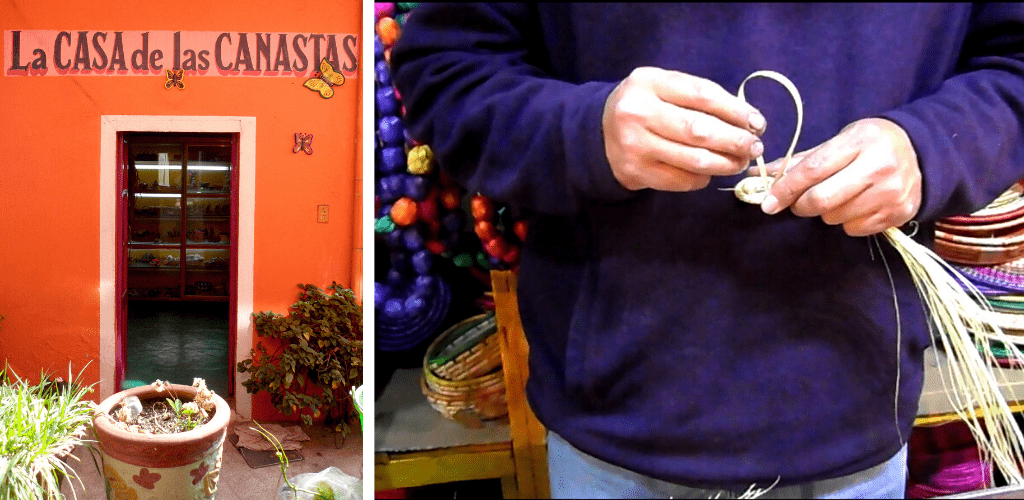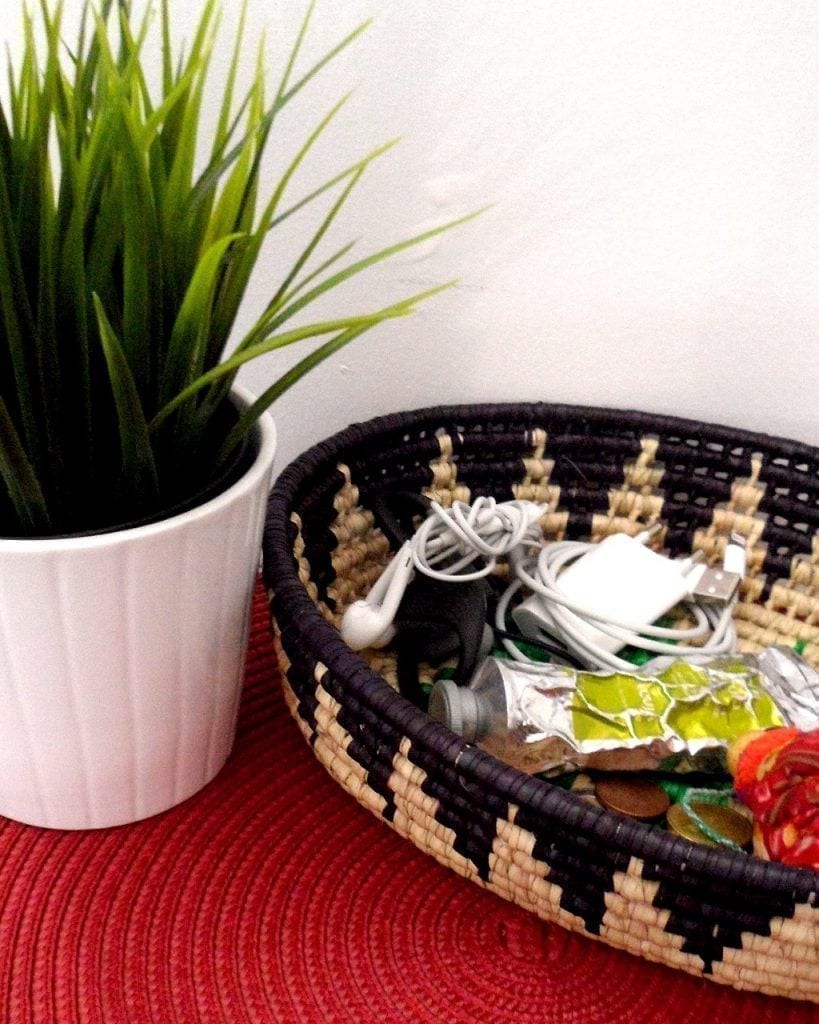David
La Casa de las Canastas

a
Handmade in Toluca, México

Materials: Palm leaf, natural pigments

Artisan community.
Traditional palm leaf handwoven technique.
Eco and sustainable products.
David
La Casa de las Canastas

a
Handmade in Toluca, México

Materials: Palm leaf, natural pigments

Artisan community.
Traditional palm leaf handwoven technique.
Eco and sustainable products.

When you arrive at La Casa de las Canastas, you may not be sure if you are in the right place. As in a lot of other places, the houses have become workshops and this case was no exception. David is the fourth generation of artisans to work with one of the most popular natural fibers: palm. His workshop located in the city of Toluca (one hour from Mexico City) is full of color, textures, shapes and an indescribable smell characteristic of these handicrafts. Those who visit La Casa de las Canastas can get lost among shelves full of palm-woven handicrafts, with vibrant colors and shapes that do not follow any pattern, except the creativity of those who make them.
It’s not known exactly how many years La casa de las canastas has, but on one of the walls there is a 1953 acknowledgement, so we can only deduce that for more than 60 years David’s family has been dedicated to the production of palm crafts. David’s interest in this technique arose not only because it was traditional, but also because he saw his father and grandfather weaving the different products and before what he knew it he was already part of the family business. Bread baskets and tortilleros (for Mexican tortillas, not the traditional Spanish tortilla) are among the products most requested by customers, as they are multifunctional pieces that can also be used as decoration.
READ MORE
Each product takes many hours of work, from moistening the palm, slit the ends to make it easier to make the fabric, to dye it to give the color you want. Palm handicrafts can be considered one of the first ecological and sustainable products, since in the elaboration of the products it is used, literally, up to the last fiber. Although practice makes perfect and there are artisans like David who can weave a basket almost without looking at it, starting any product is quite complicated. When starting the weaving, it is important to take into account the thickness you want for the product, the shape, size and colors, as well as to know how tight you want the fabric, because the durability of each product depends on it.
To the regret of many, including David’s family, palm-woven handicrafts have been appropriated and often plagiarized by mass production companies at a much lower price, undermining the value of the art of making these products in a handicraft way. Even so, La Casa de las Canastas does not lose hope of continuing to decorate houses, hotels and restaurants; of continuing to collaborate with more artisans in the area and thus be able to bring the crafts to other places in Mexico and the world.
BUY PALM LEAF HANDICRAFTS

When you arrive at La Casa de las Canastas, you may not be sure if you are in the right place. As in a lot of other places, the houses have become workshops and this case was no exception. David is the fourth generation of artisans to work with one of the most popular natural fibers: palm. His workshop located in the city of Toluca (one hour from Mexico City) is full of color, textures, shapes and an indescribable smell characteristic of these handicrafts. Those who visit La Casa de las Canastas can get lost among shelves full of palm-woven handicrafts, with vibrant colors and shapes that do not follow any pattern, except the creativity of those who make them.
It’s not known exactly how many years La casa de las canastas has, but on one of the walls there is a 1953 acknowledgement, so we can only deduce that for more than 60 years David’s family has been dedicated to the production of palm crafts. David’s interest in this technique arose not only because it was traditional, but also because he saw his father and grandfather weaving the different products and before what he knew it he was already part of the family business. Bread baskets and tortilleros (for Mexican tortillas, not the traditional Spanish tortilla) are among the products most requested by customers, as they are multifunctional pieces that can also be used as decoration.
Each product takes many hours of work, from moistening the palm, slit the ends to make it easier to make the fabric, to dye it to give the color you want. Palm handicrafts can be considered one of the first ecological and sustainable products, since in the elaboration of the products it is used, literally, up to the last fiber. Although practice makes perfect and there are artisans like David who can weave a basket almost without looking at it, starting any product is quite complicated. When starting the weaving, it is important to take into account the thickness you want for the product, the shape, size and colors, as well as to know how tight you want the fabric, because the durability of each product depends on it.
To the regret of many, including David’s family, palm-woven handicrafts have been appropriated and often plagiarized by mass production companies at a much lower price, undermining the value of the art of making these products in a handicraft way. Even so, La Casa de las Canastas does not lose hope of continuing to decorate houses, hotels and restaurants; of continuing to collaborate with more artisans in the area and thus be able to bring the crafts to other places in Mexico and the world.






